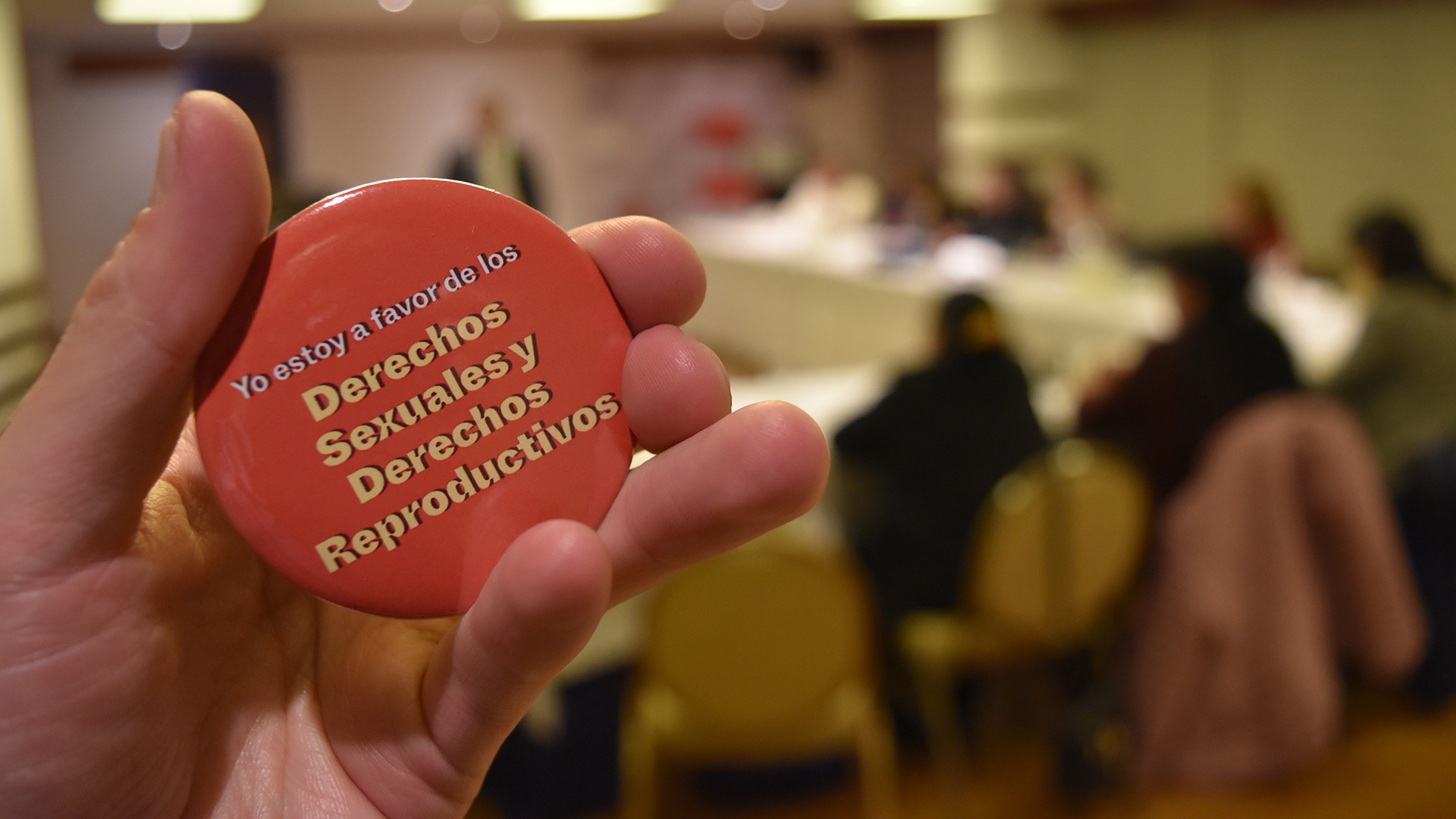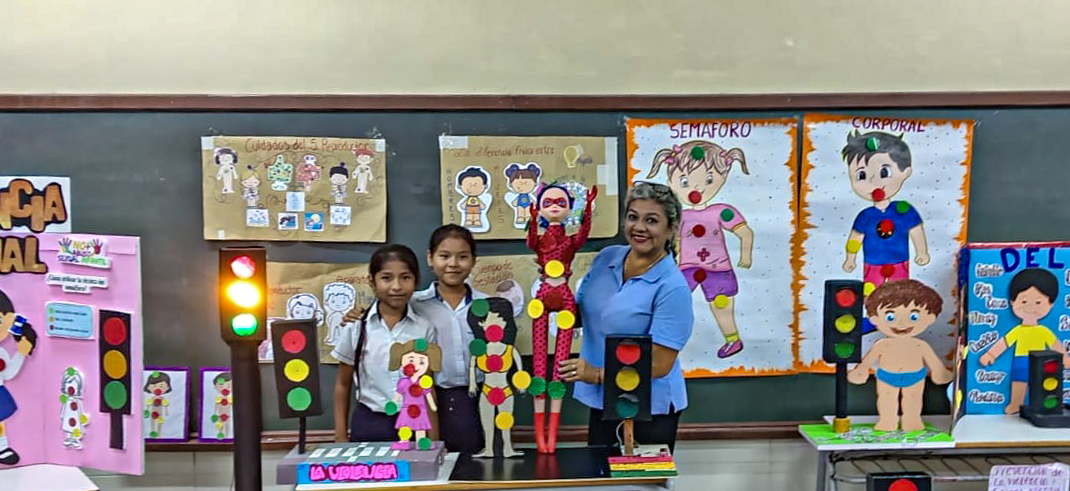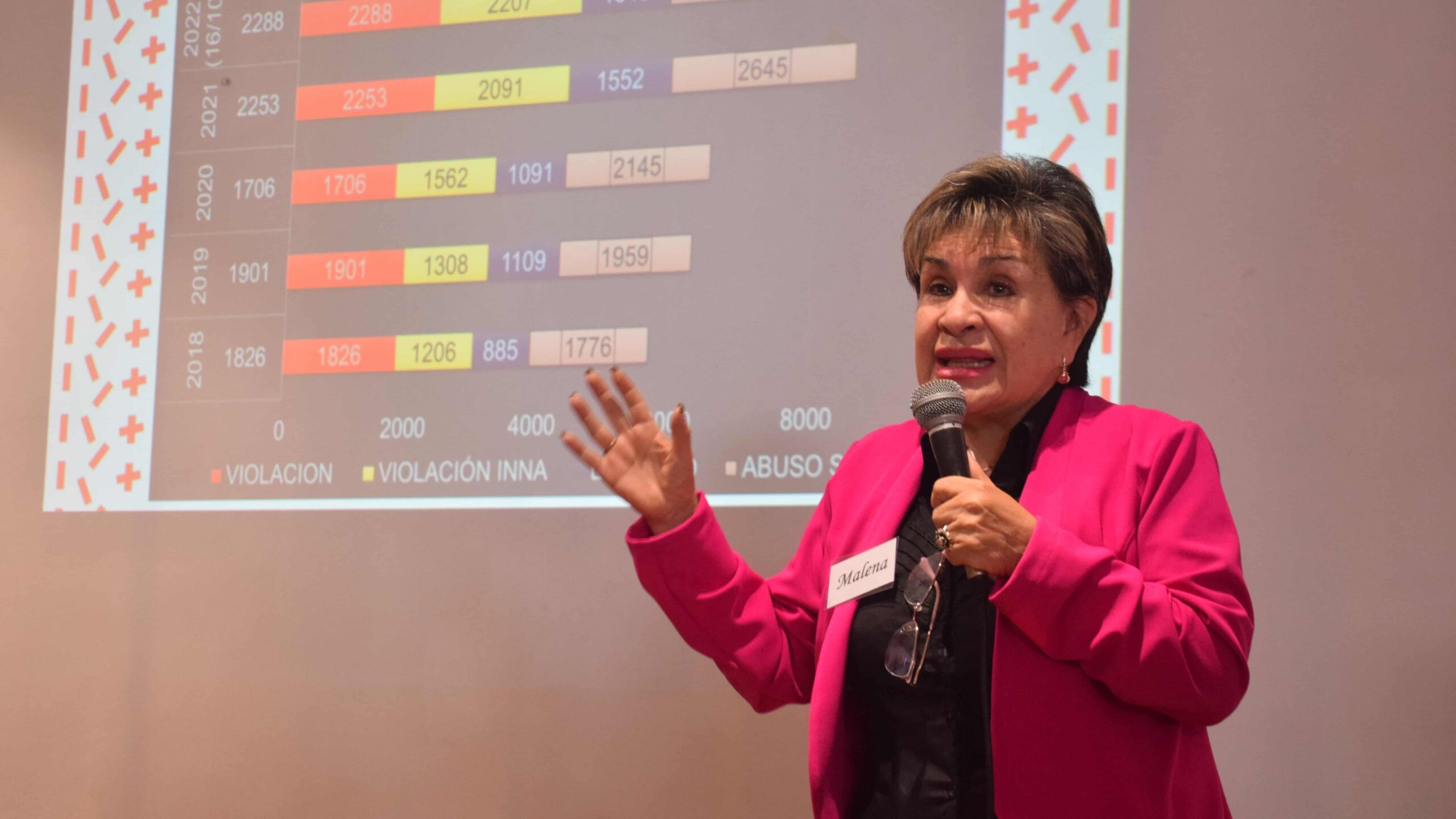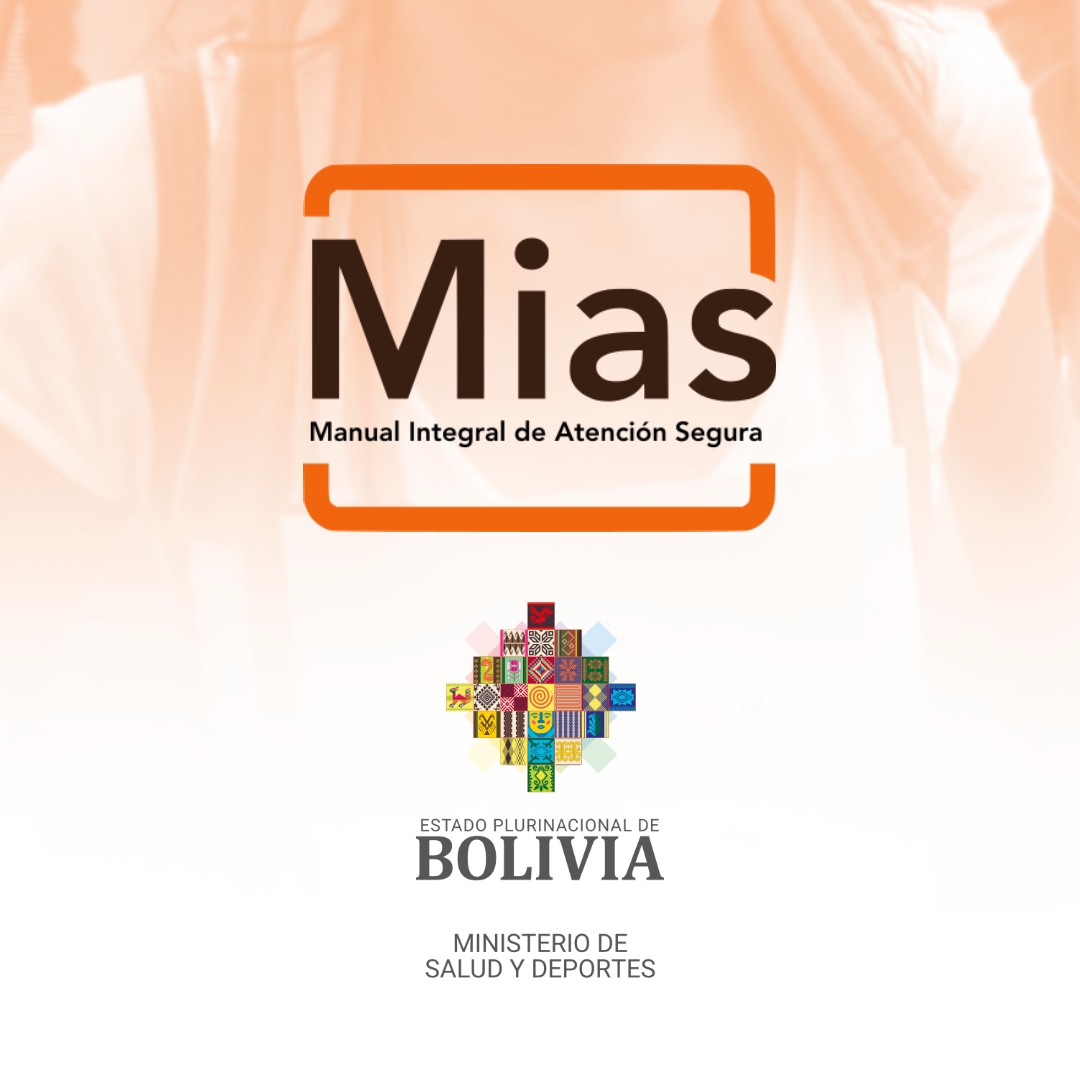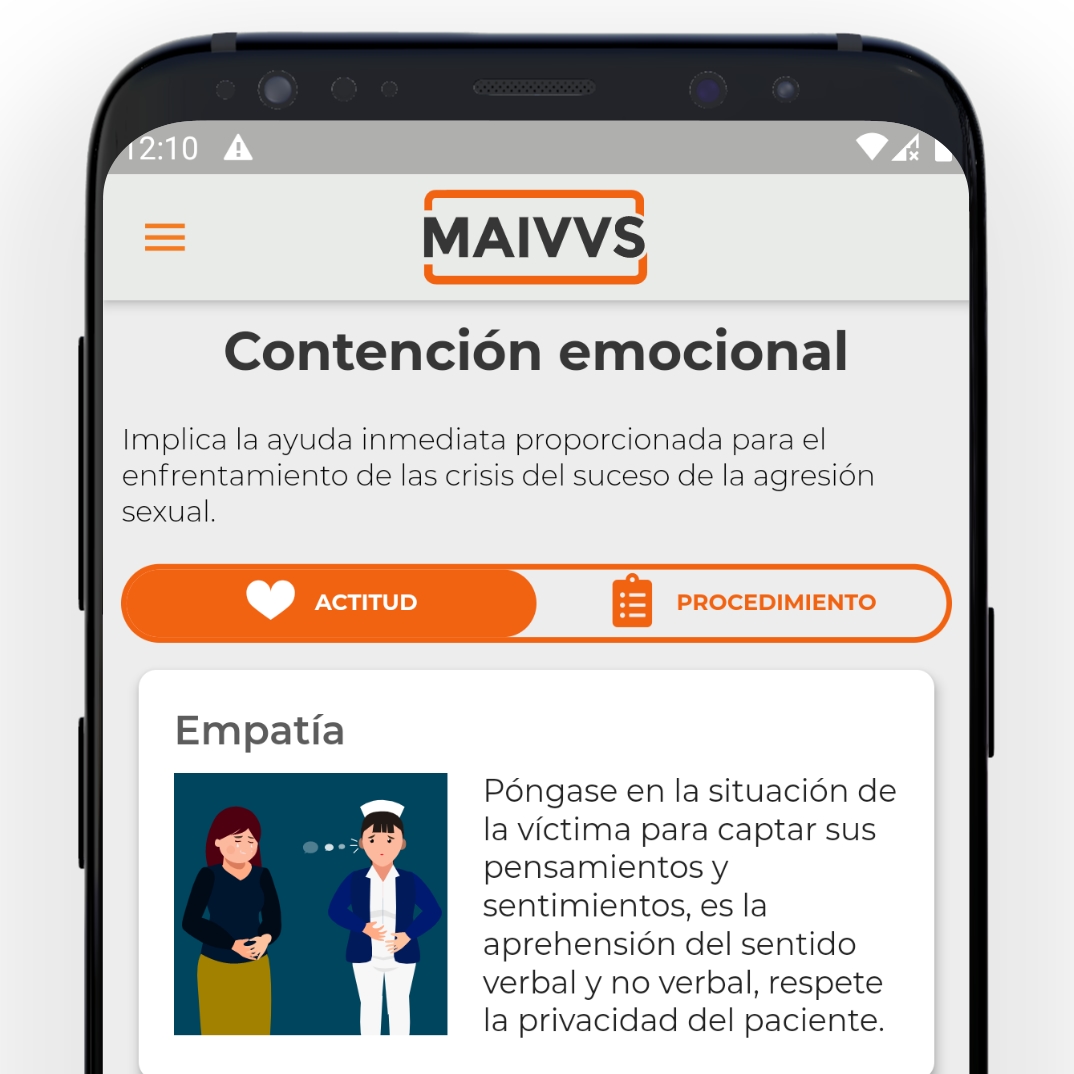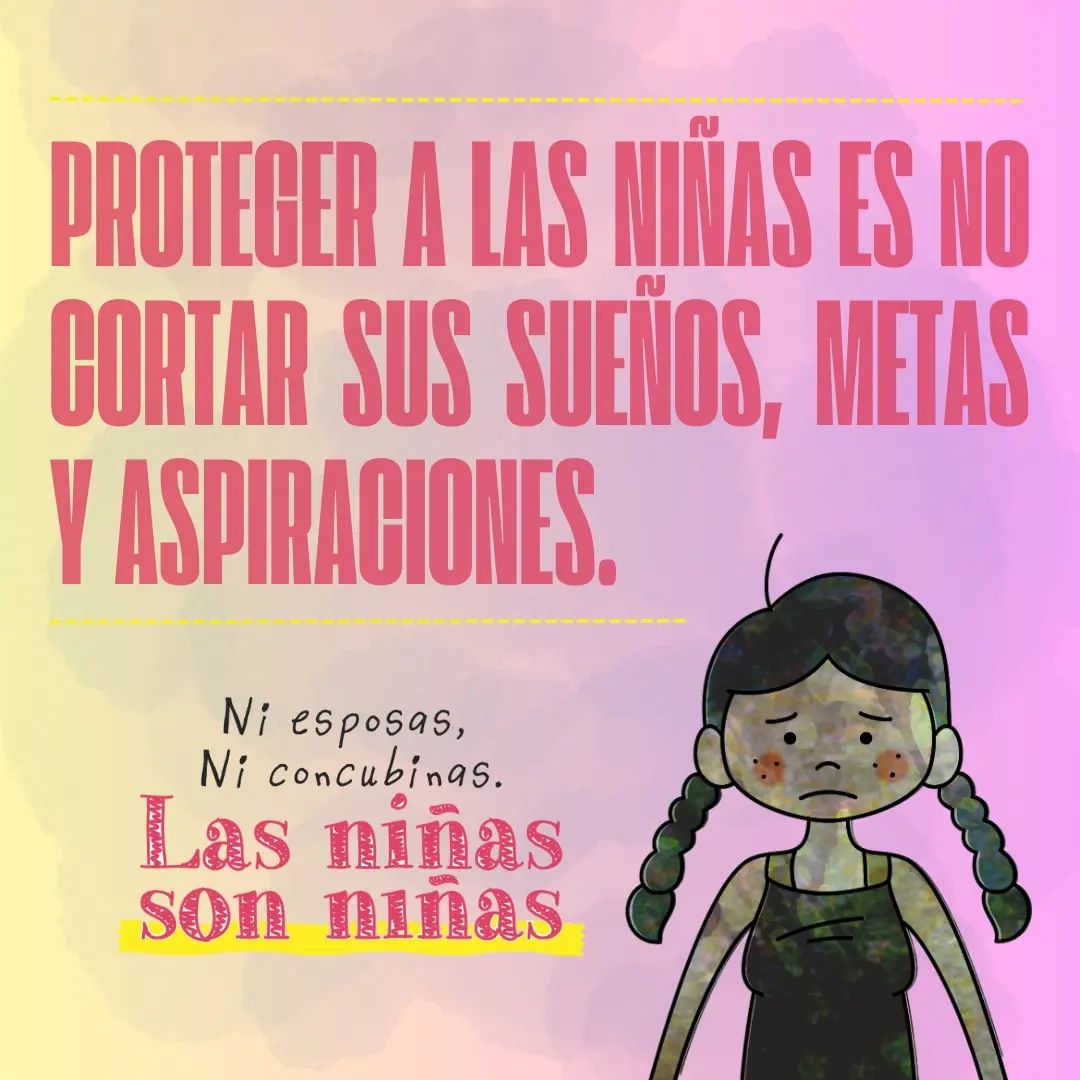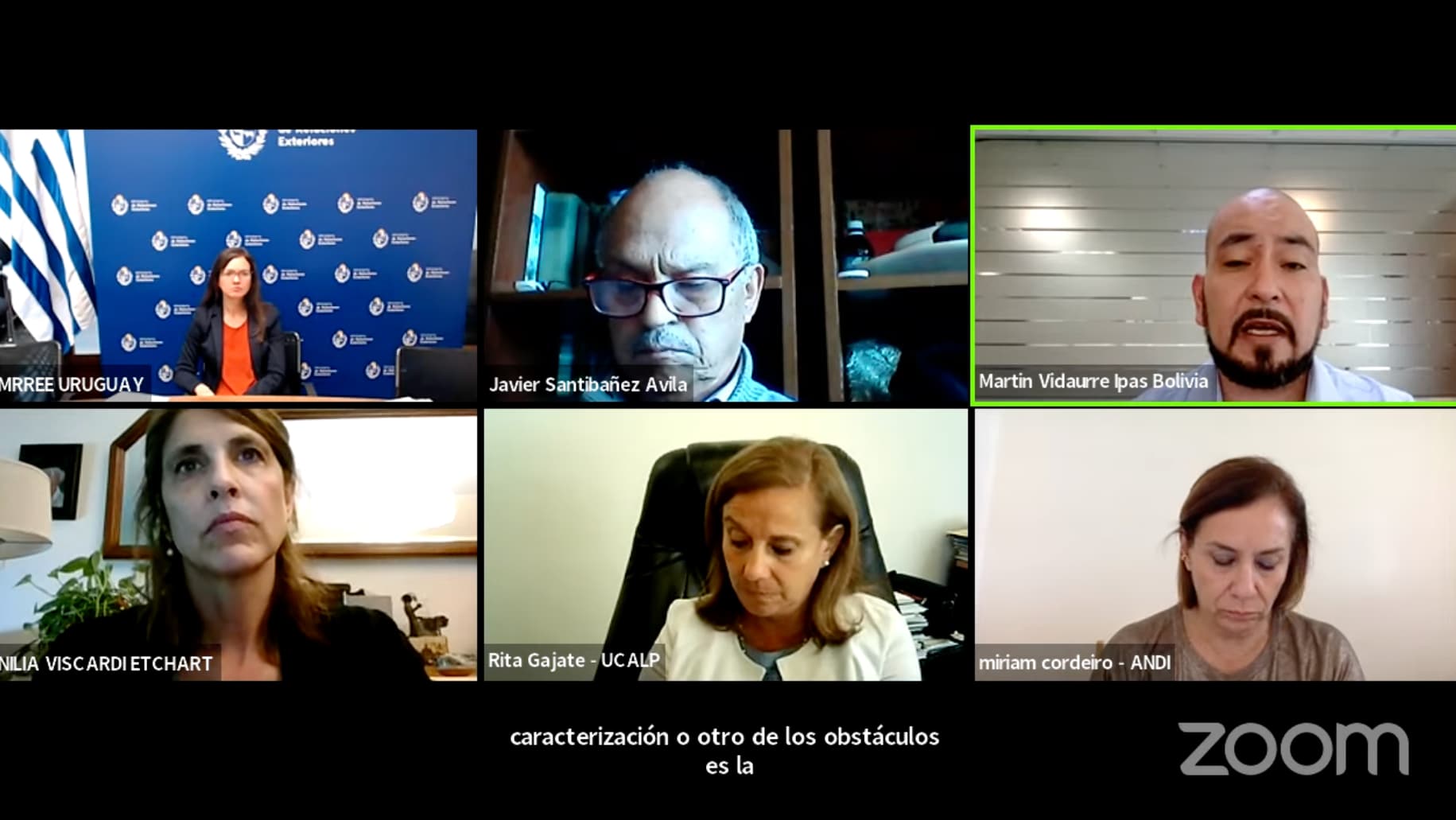He presented alarming figures on sexual violence and child, early and forced marriages and unions in Bolivia. He stressed the need to promote public policies that ensure a life free of violence, the full exercise of sexual and reproductive rights, access to education, health, recreation and special protection, essential elements for the comprehensive development and satisfaction of the needs, interests and aspirations of children and adolescents. It also urged the countries of the region to adopt urgent measures to guarantee their rights.
The panel was moderated by Dr. Nilia Viscardi, sociologist and researcher at the Universidad República de Uruguay, and featured prominent international speakers who shared data, research and institutional experiences on child violence. Among them were Rita Gajate, from the Catholic University of La Plata (Argentina); Maholy Sánchez, from Veneactiva (Peru); Martín Vidaurre, from Ipas Bolivia; and Miriam Cordeiro, from ANDI (Brazil).
The agenda included a variety of topics, among them: the violations faced by children and adolescents in migration contexts; criminality related to gender violence; comprehensive sexual education; sexual violence; child, early and forced marriages and unions; as well as early and forced pregnancies.
A highlight of the interventions was the analysis made by Martín Vidaurre, representative of Ipas Bolivia, on the situation of sexual violence and early child marriages and unions in Bolivia, during which Vidaurre highlighted the urgent measures that should be included in the MERCOSUR human rights agenda.
“According to official figures from the Attorney General’s Office, between 2018 and 2023, more than 13,500 cases of rape of girls, boys and adolescents were registered. This alarming increase reflects a reality that demands immediate attention”, he also revealed official data from the Ministry of Health on the Legal Interruption of Pregnancy, warning that between “the managements 2021 to 2023, 82% were performed to girls and adolescents due to sexual violence”, highlighted Vidaurre.
He also called for action to eradicate child, early and forced marriages and unions, as well as the importance of including comprehensive sex education in the educational curricula of all MERCOSUR countries as a key preventive measure.
“Child, early and forced marriages and unions are a violation of the fundamental rights of girls and adolescents. We cannot continue to allow these practices, which perpetuate inequality and violence, to be naturalized,” emphasized Vidaurre.
This event is an important step in the fight for the rights of children and adolescents in the region. The session culminated with a forum for consultation and political coordination organized by the Uruguayan Foreign Ministry. This forum is the MERCOSUR body in charge of monitoring all social and political policies of the bloc. The results of the panel will be presented to the MERCOSUR foreign ministers and presidents, and will also be available in the report published on the MERCOSUR Secretariat’s website after December 6.

